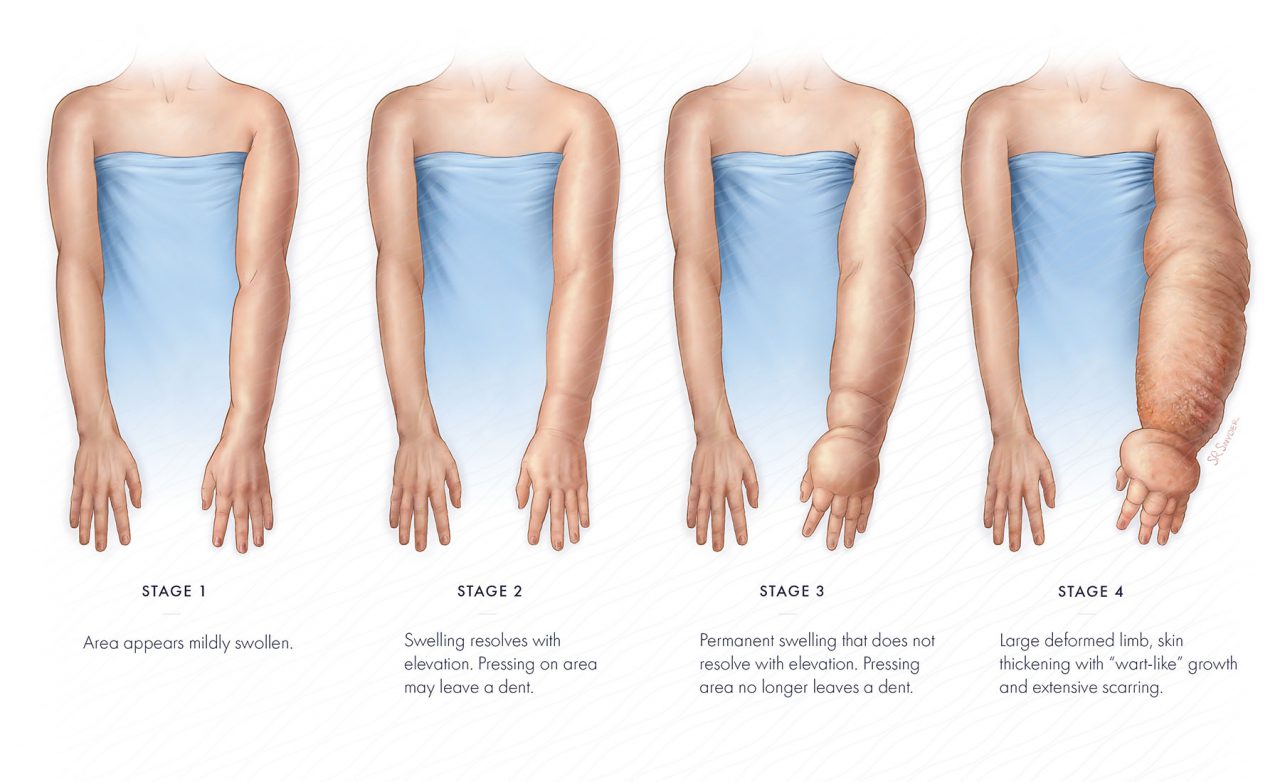
Lymphedema can be caused by cancer treatments, such as surgery or radiation, that affect the lymph nodes. It can also result from infections, inherited disorders, or parasites that clog the lymph vessels.
Lymphedema causes major severity in the person when it affects the hand and the legs as these are the major organs that debilitate any person.
Lymphoedema is thought to affect more than 200,000 people in the UK. Primary lymphoedema is rare and is thought to affect around 1 in every 6,000 people. Secondary lymphoedema is much more common.
It’s the most common form of primary lymphoedema representing 75-80% of the cases. It manifests itself in adolescence, with women being affected four times as often as men.
Symptoms of lymphedema can range from mild to severe. They include swelling of part or all of the limb, pain, tightness, difficulty moving, skin changes, and increased risk of infection.
There is no cure for lymphedema, but treatments can help reduce the swelling and prevent complications. Some of the treatments are exercises, massage, compression bandages or garments, and pneumatic pumps.
Surgery can help some lymphedema patients by changing lymph flow, removing tissue, or both. Other treatments are usually also needed.
Lymphedema affects your well-being and health. See your doctor for swelling, infection, or sepsis signs. Prevent injuries, look after your skin, and seek support.